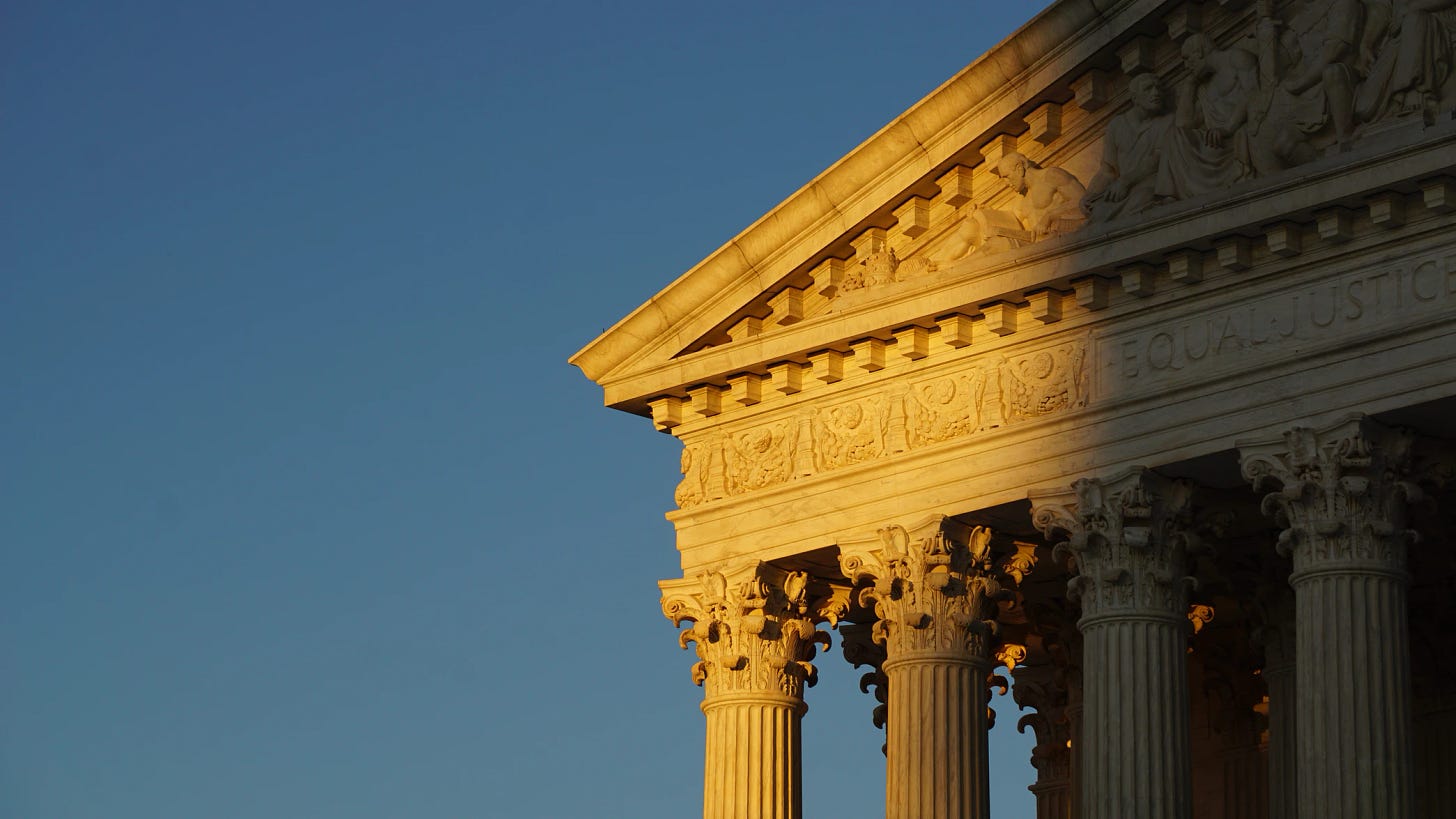I’ve said for a while that both parties act like they want to be in the minority. Every time either party gains power, it bellies up to the trough of government power and gorges itself to the point where nonpartisan voters are sickened by the gluttony. At that point, unaffiliated voters in the center shift to the opposition party in order to rein in the power grab. It is only a question of how long the process takes.
We’ve seen the process play out several times in recent years. Democratic excesses under Barack Obama paved the way for Donald Trump. Trump, in turn, governed as if his base were the only voters who mattered.
It may turn out that it took the Democrats four months under the Biden Administration. Yesterday, Senators Ed Markey (D-Mass.) and Jerry Nadler (D-N.Y.) introduced a bill that would expand the Supreme Court to 13 justices from the current nine. Of course, the new four justices would be appointed by President Biden.
There are a couple of problems with this strategy. The fact that polling last fall showed overwhelming opposition to the plan to expand the Court is not the least of its flaws.
The biggest problems with the plan are Joe Manchin and Kyrsten Sinema. Both the West Virginia and the Arizona Democrat are on record as opposing an expansion of the Court. Without these two votes, the expansion plan would be dead even if Democrats could get the bill past a Republican filibuster. Of course, the Democrats can’t get around the filibuster without the votes of… wait for it… Joe Manchin and Kyrsten Sinema.
The two red-state (or at least purple on the part of Arizona) Democrats understand what many in the national party don’t. Namely, veering left to cater to the progressive base is the fastest way to lose both the Democratic majority and the seats of vulnerable senators -like Manchin and Sinema- who would be forced to vote on the unpopular bills.
Yet another problem is that, if Democrats are able to pull off a court expansion, we can be sure that it would not be the last time. This is especially true if the filibuster is a casualty of the rush to pack the Court. Without the filibuster, we can expect both parties to expand the Court every time they have a judicial minority and are in control of both Congress and the presidency. The result would be the politicization of the Supreme Court in a way that we have never seen.
Democratic claims that the Court should be expanded to 13 justices because there are 13 federal circuit courts are an after-the-fact rationalization. The reality is that there is no need to have one justice for every circuit and such a balance seems never to have been the case. It is true that a justice is assigned to each federal circuit court for emergency orders and that some justices do double duty, but both the number of circuits and justices have fluctuated independently throughout our history.
The Judiciary Act of 1789 which established the details of our judicial system both created three circuit courts and set the number of justices at six. Originally, Supreme Court justices “rode circuit” and held court in each circuit two times every year. Additional circuit courts were added sporadically as states joined the Union and (sometimes) separate acts of Congress both increased and decreased the size of the Court. The Court grew several times, eventually expanding to 10 justices in 1863 and then was reduced to nine by the Judiciary Act of 1869. We did not reach our current total of 13 circuit courts until 1982 with the passage of the Federal Circuit Act. There seems to have been no period when there was one justice per circuit and no real reason to adopt the model now.
Although I am not in favor of the Democratic plan to expand the Court, the Republicans are not innocent in all this. The Democratic push to pack the Court was easily predictable because many on the left were openly threatening to do so if the Republicans broke their own standard of confirming a justice in the middle of an election.
It was also Mitch McConnell who invoked the nuclear option and eliminated the filibuster for Supreme Court nominees in 2017. The move was a response to former Senate Majority Leader Harry Reid’s first use of the nuclear option to eliminate the filibuster for lower-court nominees and presidential appointments in 2013. If McConnell had preserved the filibuster for Supreme Court appointees, it might not be so tempting for Democrats to pack the Court today, in part because the makeup of the current Court would be different.
Nevertheless, the push to pack the Court is destined to blow up in the faces of the Democrats. Congressional math makes it a suicide mission and one that will be intensely unpopular with moderate voters. If such a radical course of action doesn’t push moderate voters back toward the GOP it will probably only be because Republicans worked harder to alienate the electorate than the Democrats did.
Both parties have the attitude that they could lose power at anytime while often simultaneously acting as though they will never again be a minority. The irony is that if leaders led their parties in a more moderate and measured agenda, they stay in power longer and make more permanent gains.

No comments:
Post a Comment